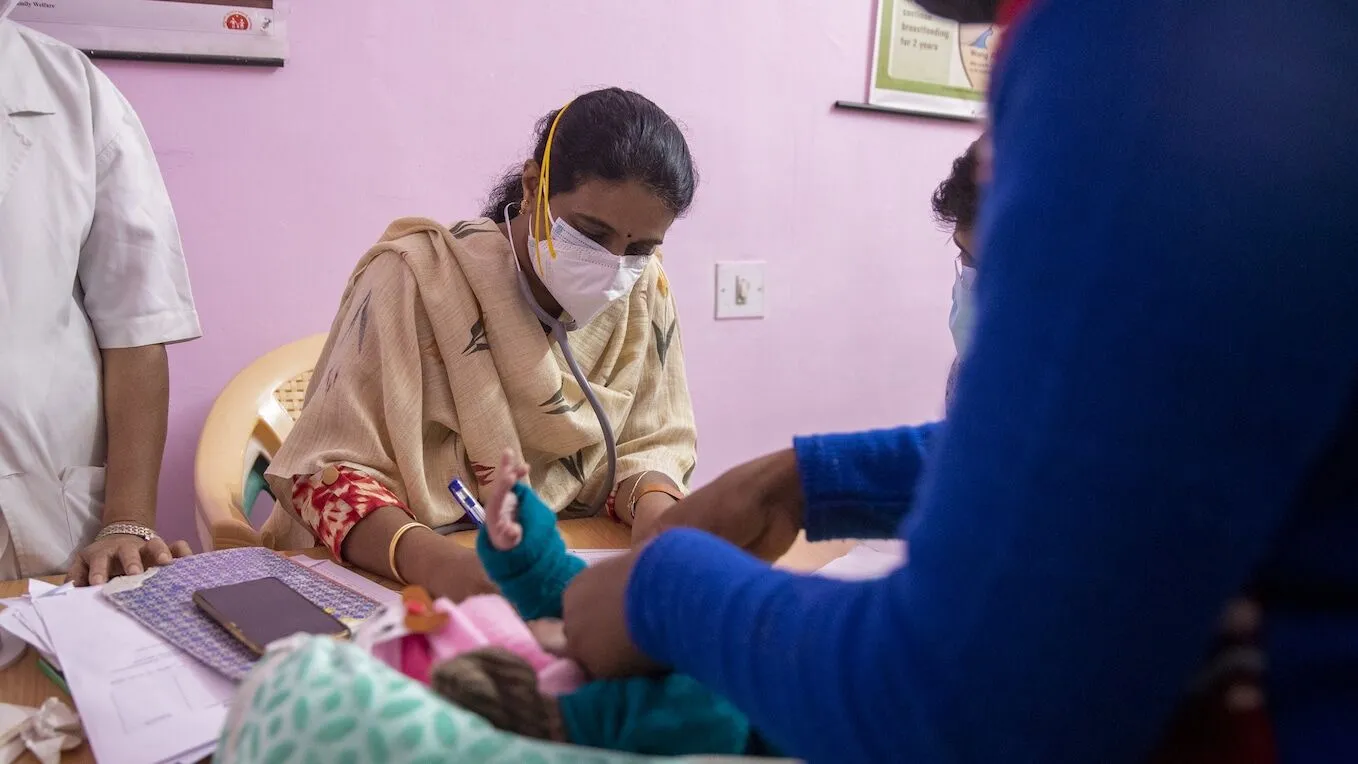We’re Taking Health Care Workers – a Bastion of our Societies – for Granted
These last three years of the COVID-19 pandemic highlighted the crucial role that health care workers play in our society, our economy, and our security; yet, in every corner of the globe, we have allowed them to be pushed to their breaking point.

Well before the pandemic, the vast shortage of primary health care workers, the uneven distribution of them throughout health systems, and insufficient or no pay fueled deep and widespread burnout. In fact, many have left the profession for good, and the current education pipeline is not nearly enough to fill the void.
In 2019, for instance, the shortfall and distribution of health care workers was a pandemic in and of itself with countries like Chad, Eritria, and Niger having just one doctor per 10,000 people, compared to the U.S., which had 35 times that.
In many of the world’s poorer areas, we rely on community health workers — 70% of whom are female — who are vastly underpaid, if they are even paid at all.
In 2019, the shortfall and distribution of health care workers was a pandemic in and of itself with countries like Chad, Eritria, and Niger having just one doctor per 10,000 people.
Long before COVID-19 became part of our lexicon, it was community health workers on the front lines combatting the Ebola outbreak in the West African countries of Liberia, Sierra Leone, and Guinea. With insufficient training and protective equipment, health workers stepped up to the frightening and — too often — deadly challenge. Of the nearly 17,000 cases of Ebola, at least 600 were among health care providers, more than half of whom died.
And then, when the COVID-19 pandemic hit, health care workers in every corner of the world rose to the challenge, bravely leaving their families and the safety of home to show up for their communities, despite drastic shortages of personal protective equipment.
The frontline health workers in the global south — already overworked and under-supported — were further insulted as they watched peers in wealthier countries receive the first vaccines. Months later, when vaccines finally did arrive, they were vastly insufficient, covering only 24% of people.
These shortfalls of PPE and vaccines weren’t just unfair for our health care workers, they were deadly: at least 115,000 health workers died of COVID-19.
It’s no wonder that health care workers have experienced significant mental health consequences like burnout, anxiety, and stress. And this is further compounded by the limited availability of mental health services in low-income countries, where fewer than one mental health worker of any kind exists per 100,000 people, compared with more than 60 in high-income countries. In the absence of environments and services that provide mental health care, widespread stigma and social exclusion can further prevent health workers from seeking help.

So what now? The World Health Organization estimates a projected shortfall of 10 million health workers globally by 2030, which will mostly be felt in low- and lower-middle income countries.
To rebuild our health systems, we have no choice but to strengthen our education pipeline, provide greater trainings and certifications, adequately supply and staff health facilities, and rethink the way we compensate and care for those who care for our communities.
The World Health Organization estimates a projected shortfall of 10 million health workers globally by 2030, which will mostly be felt in low- and lower-middle income countries.
At Project HOPE, we’ve been training and equipping health workers around the globe. In response to the pandemic, we provided 18 million pieces of PPE and helped deliver COVID-19 vaccine trainings in 40 countries across Africa. To tackle burnout and mental health stigmas, we’ve trained 70,000 health care workers in 40 countries through our Mental Health and Resiliency training program to provide them with the tools necessary for stress management, coping, and self-care. In places where maternal and child death rates are high due in part to unskilled or poorly staffed health workers — such as Sierra Leone or the Dominican Republic — we’ve supported education and training pathways for nurses and midwives to improve birth outcomes.
The Biden Administration’s Global Health Worker Initiative seeks to accelerate the U.S.’ investments in health workers, and they further built upon this during the U.S.-Africa Leaders Summit by pledging $1.33 billion a year to strengthen the health workforce in Africa. Exactly what will be counted toward this commitment remains unclear and so Congress mandated a report on the spending for health workers. Further, the Administration did request $20 million for a new health worker line item in the President’s 2024 budget. Taken together, this is a good start.
Ultimately, it will take more than one government or one nonprofit organization to turn the tide. What we need is a deep and thoughtful investment and coordinated, cross-sectoral global action to rethink the way we support, supply, educate, and train our health workforce so that they can not only meet the needs of their communities today, but so that we are ready for the pandemic of tomorrow.
Our health care workers deserve that, and our global health depends on it.
Jed Meline is the Director of Policy and Advocacy at Project HOPE. He previously served as director of health and humanitarian assistance at the National Security Council and as a foreign service officer with USAID.
Urvi Chowdhury is a Policy Advocacy Fellow at Project HOPE. She previously worked at United Against Inequities in Disease (UAID) and the United Nations Foundation.







